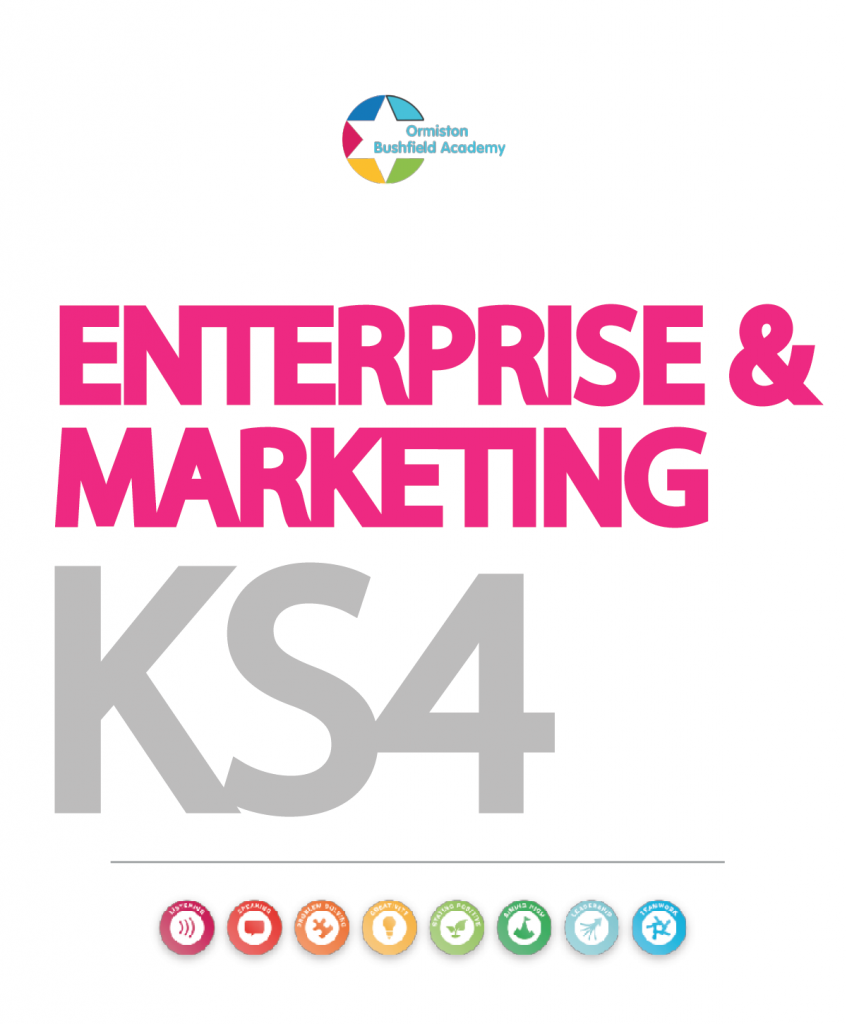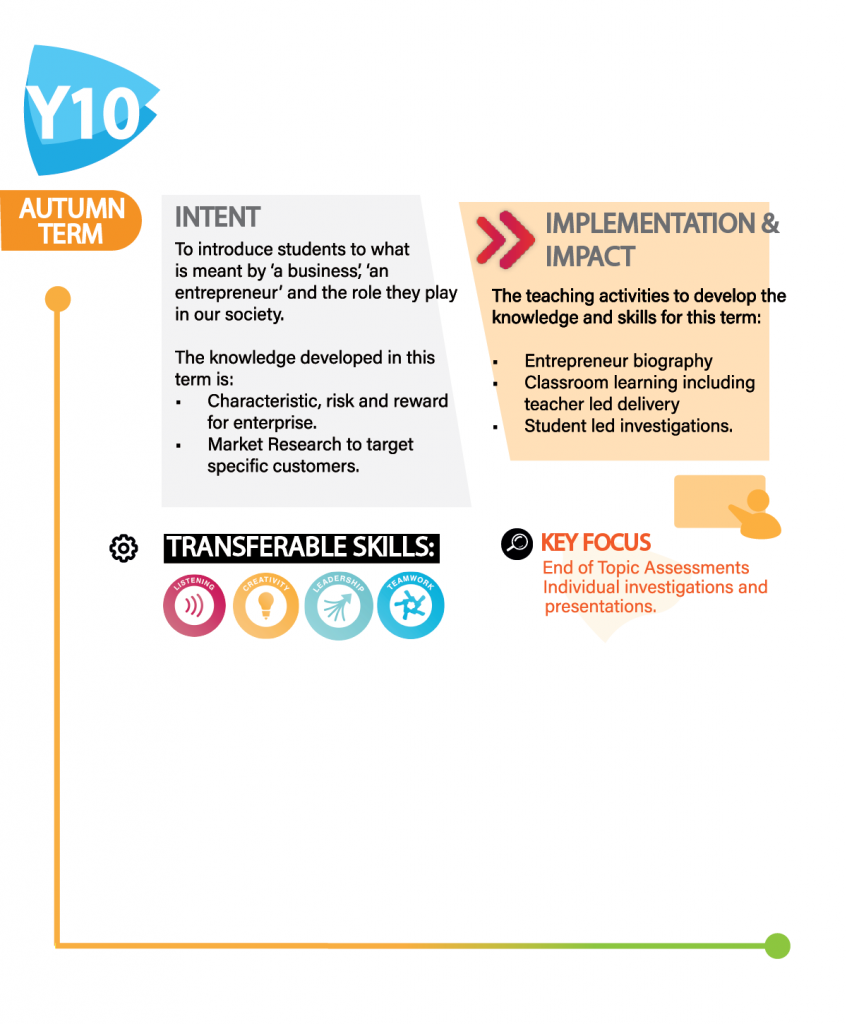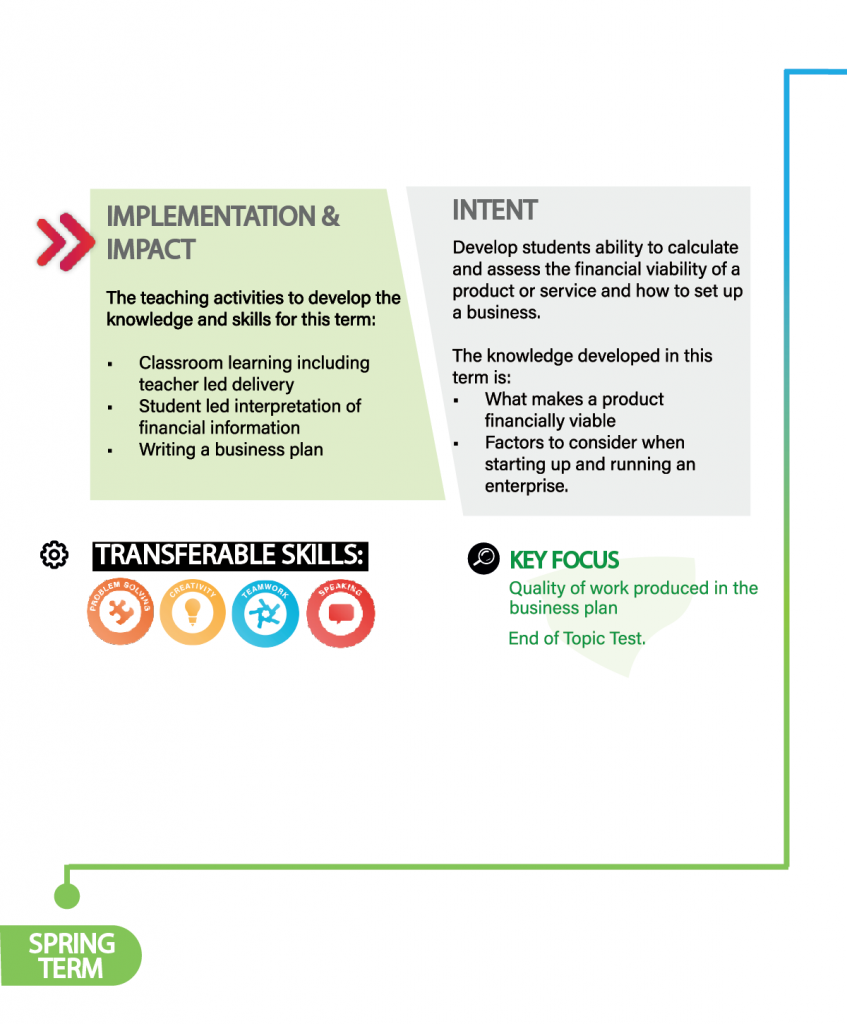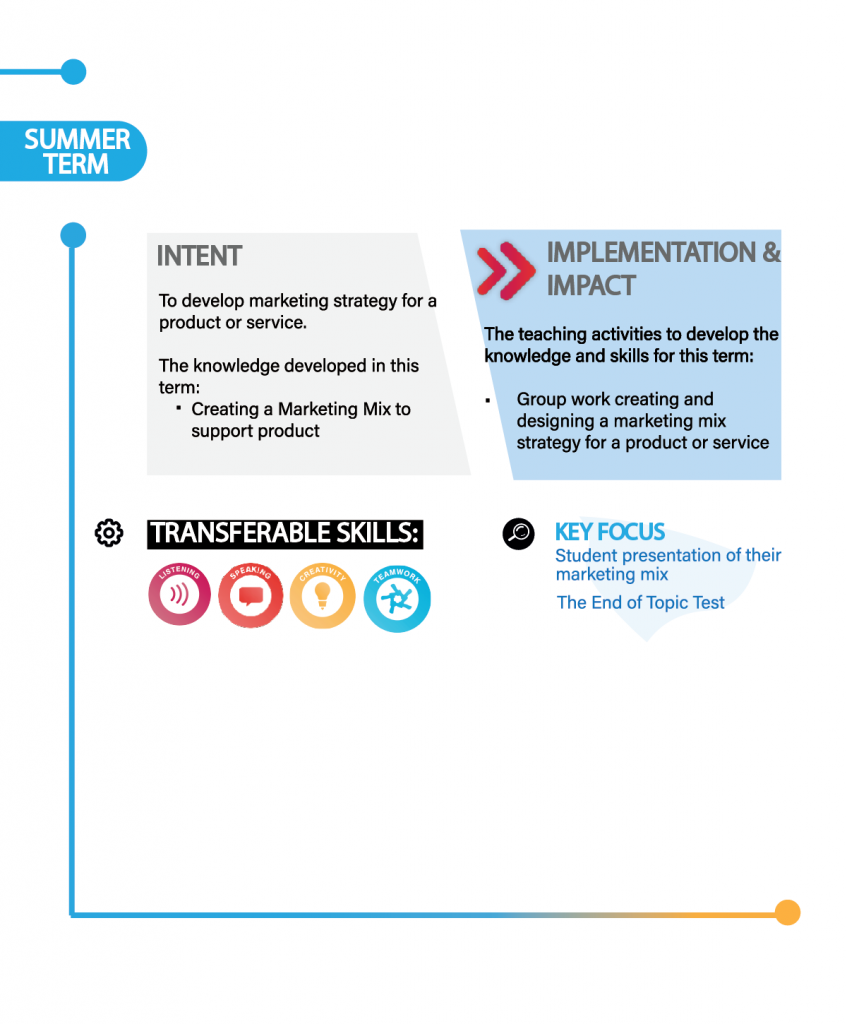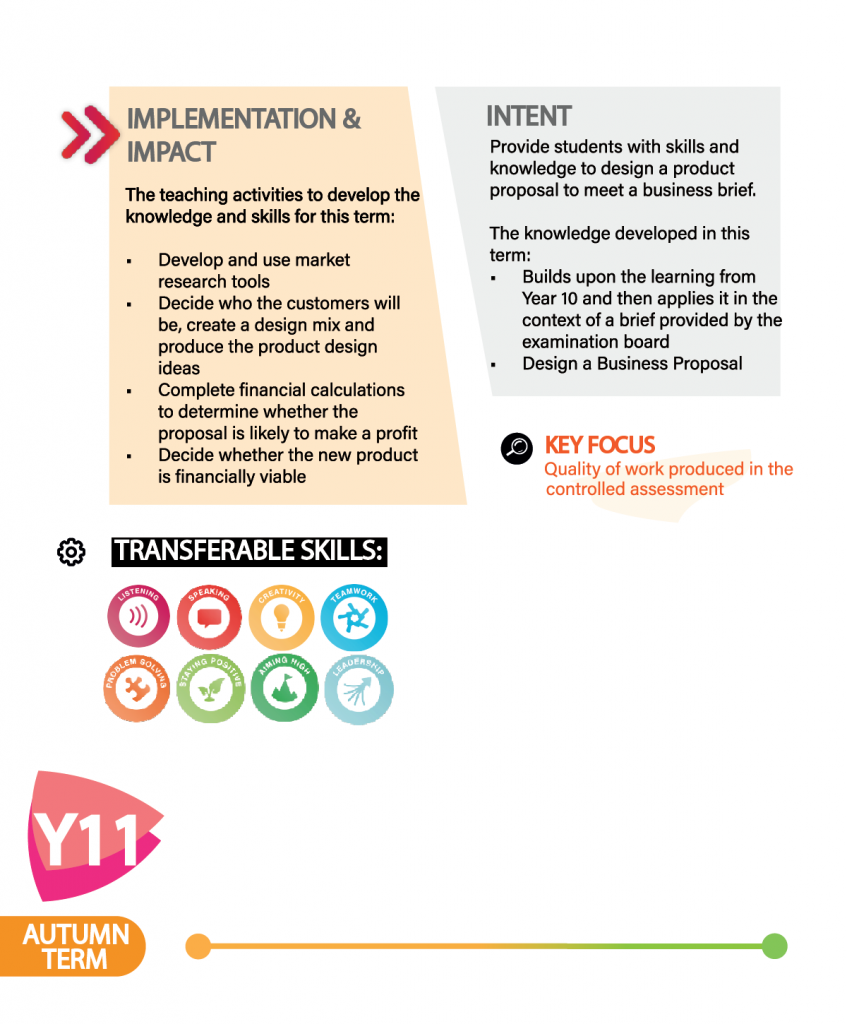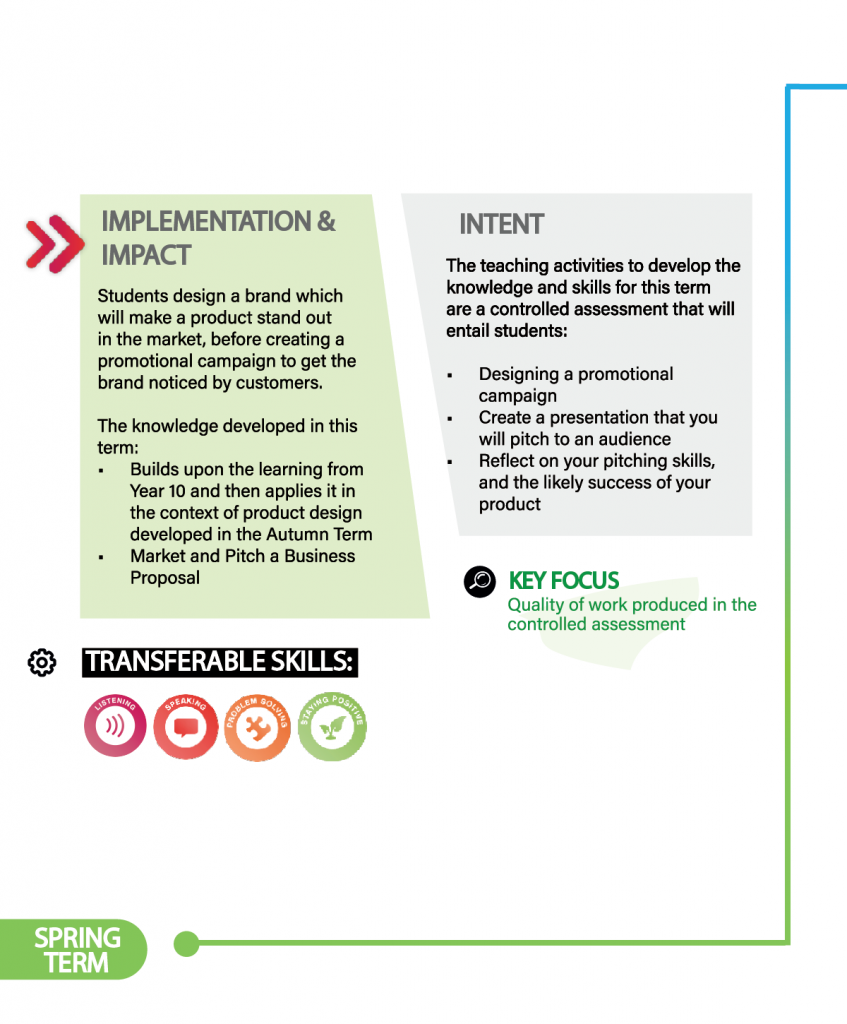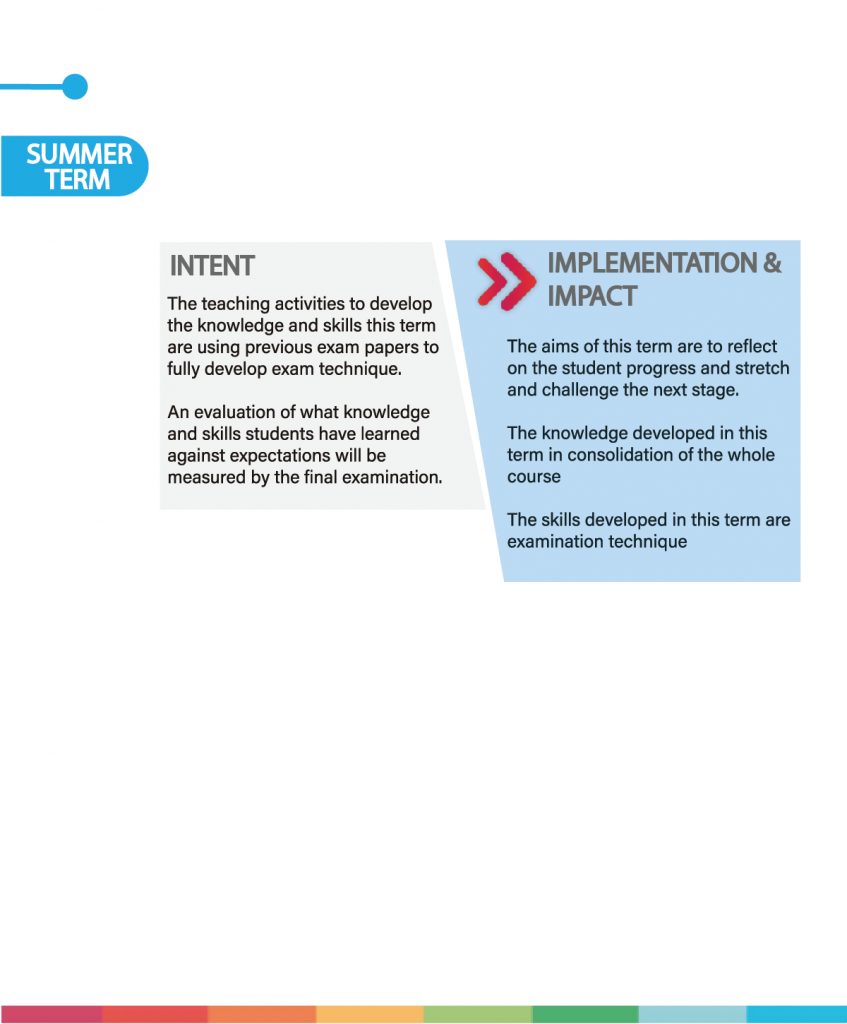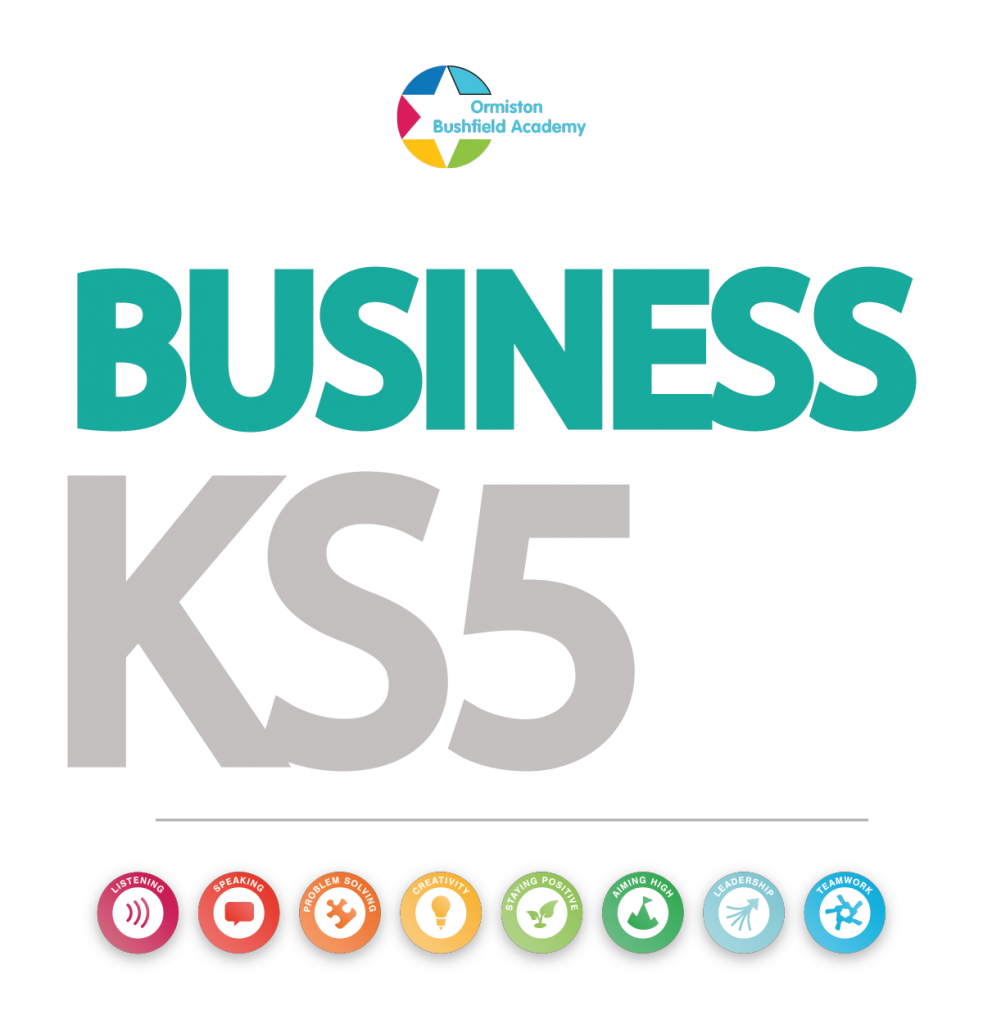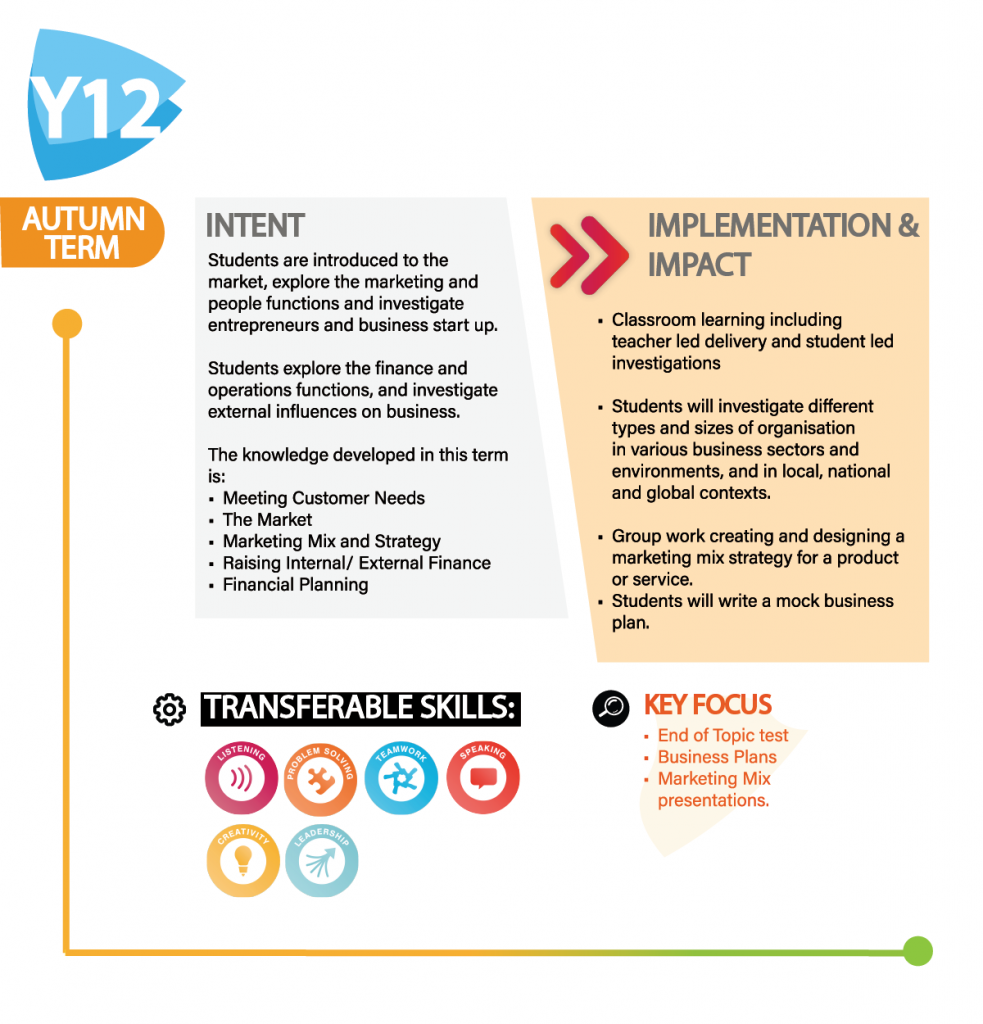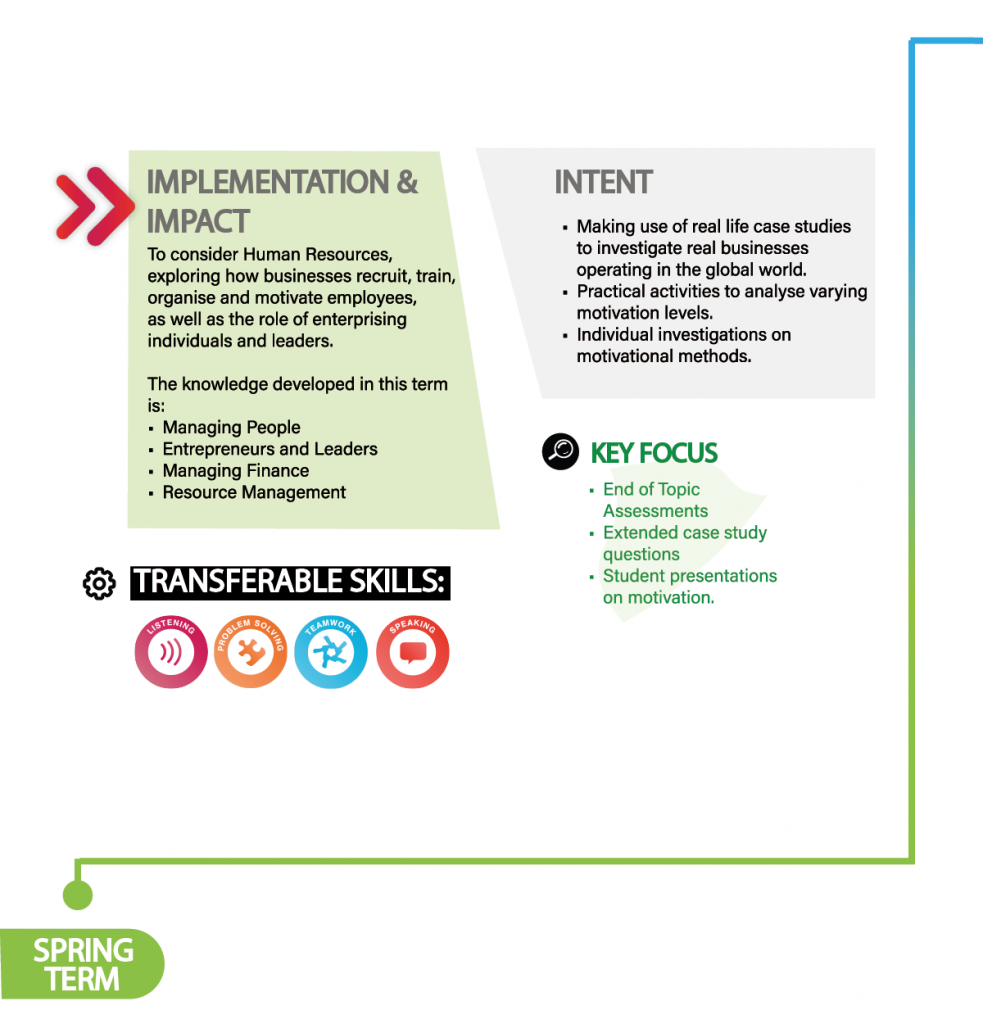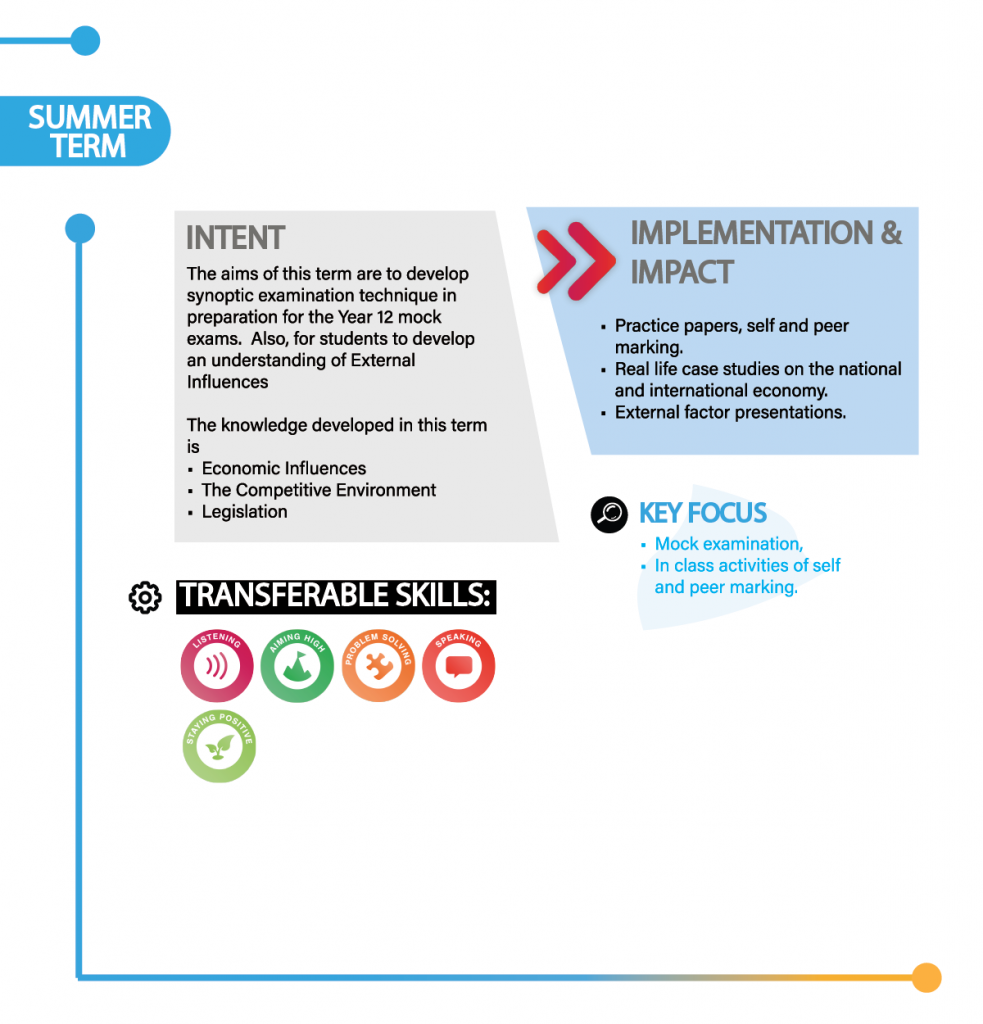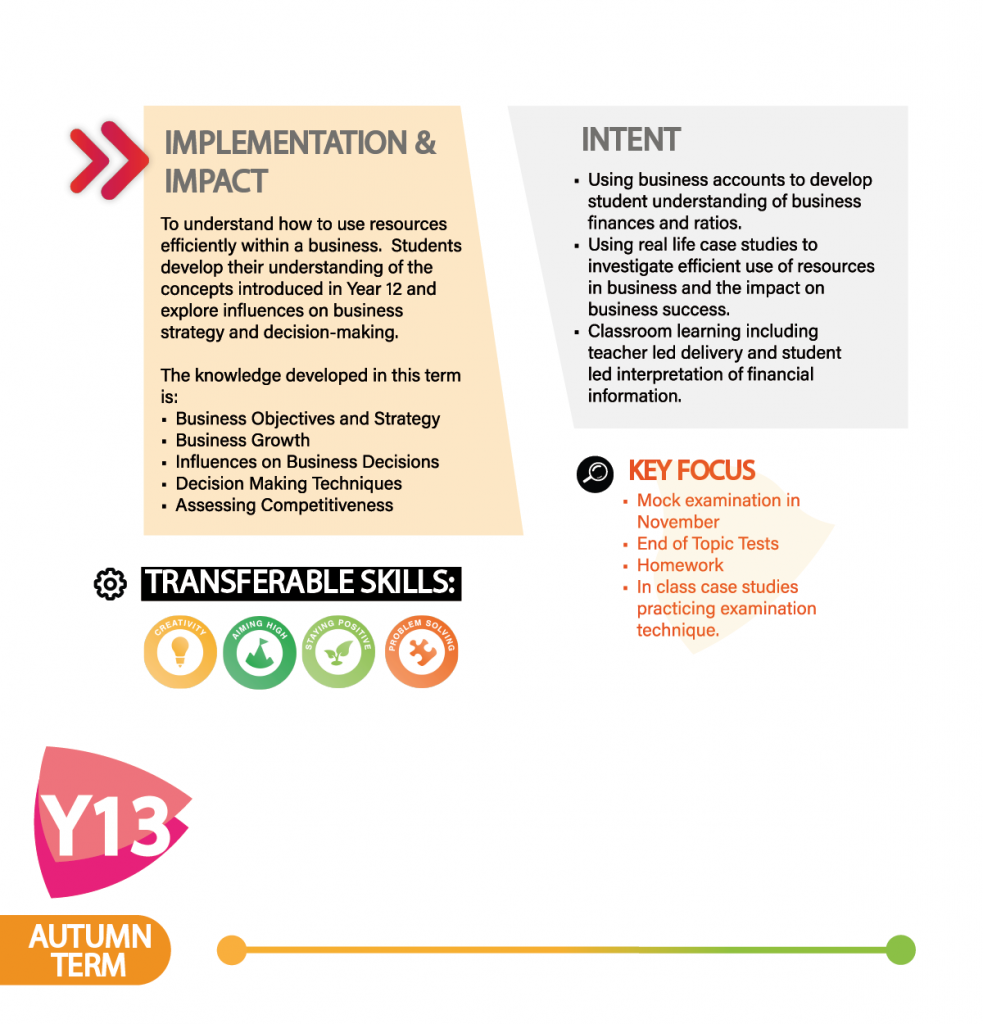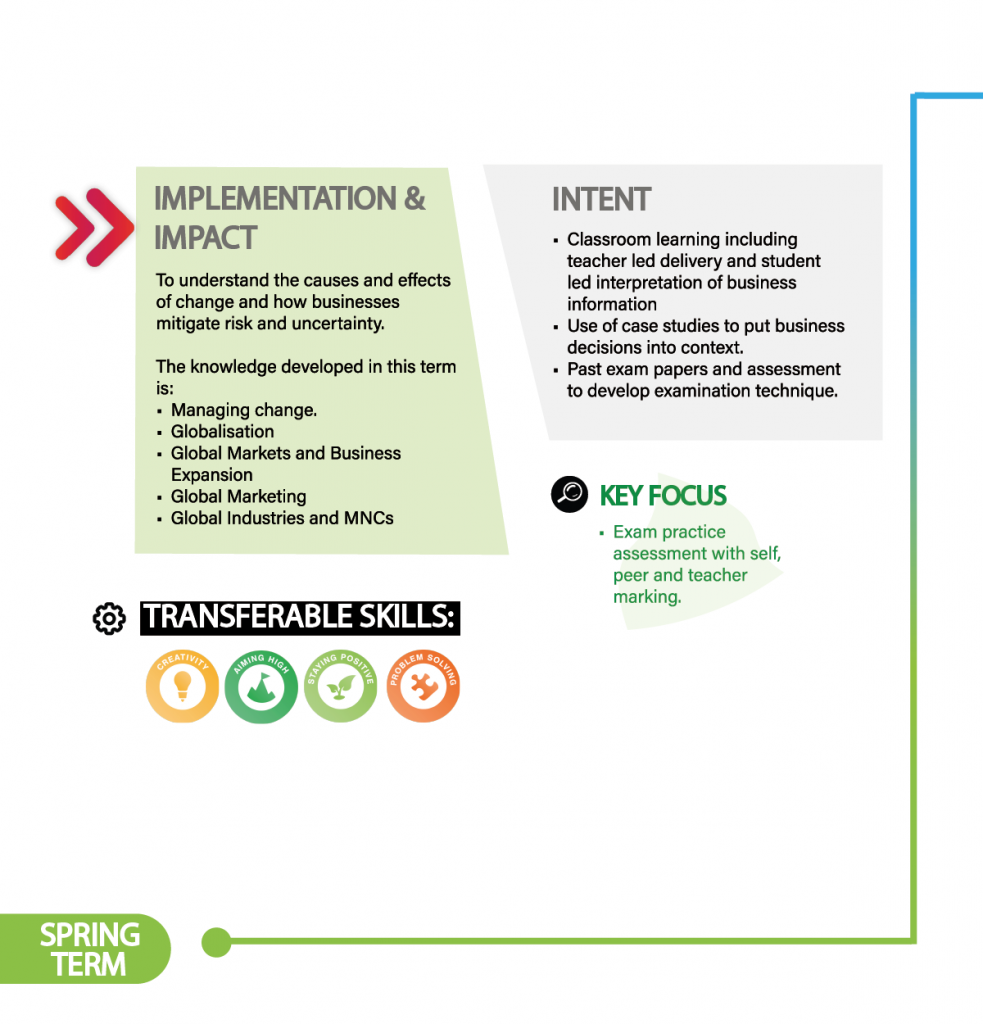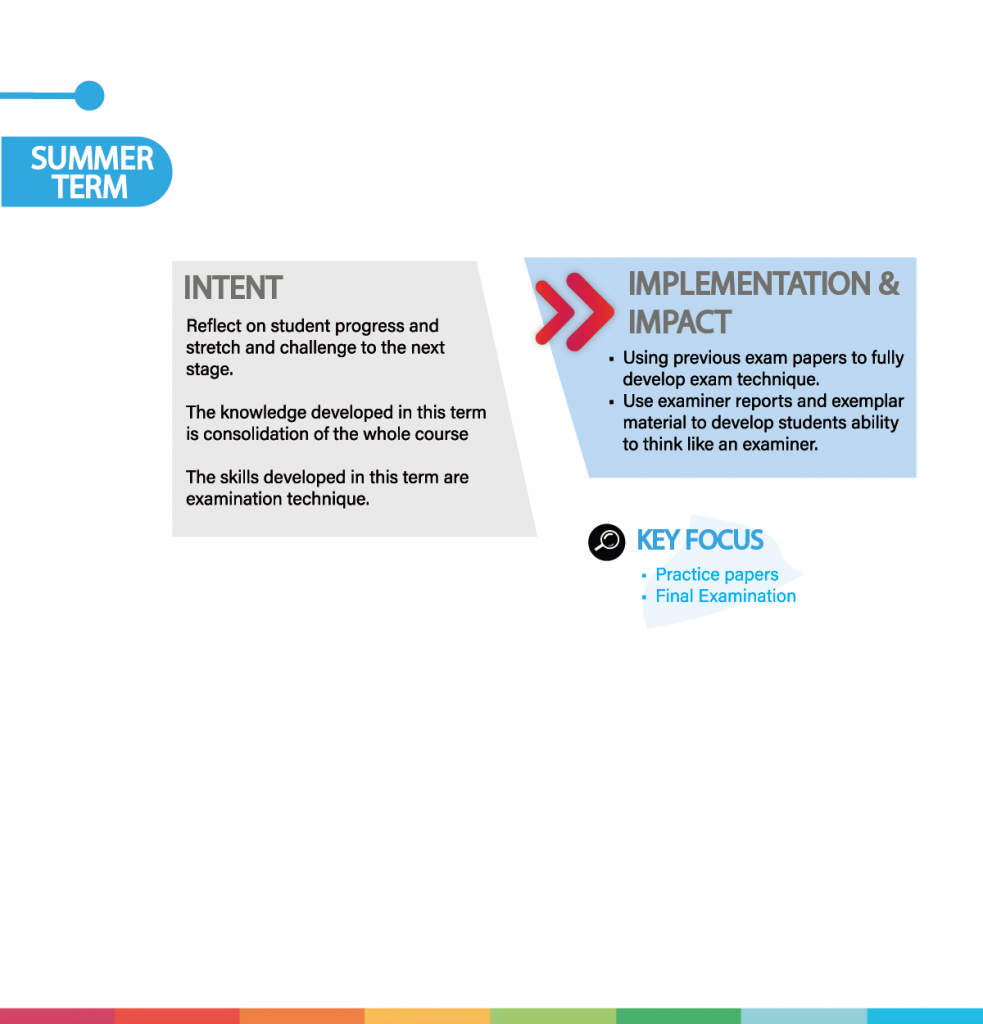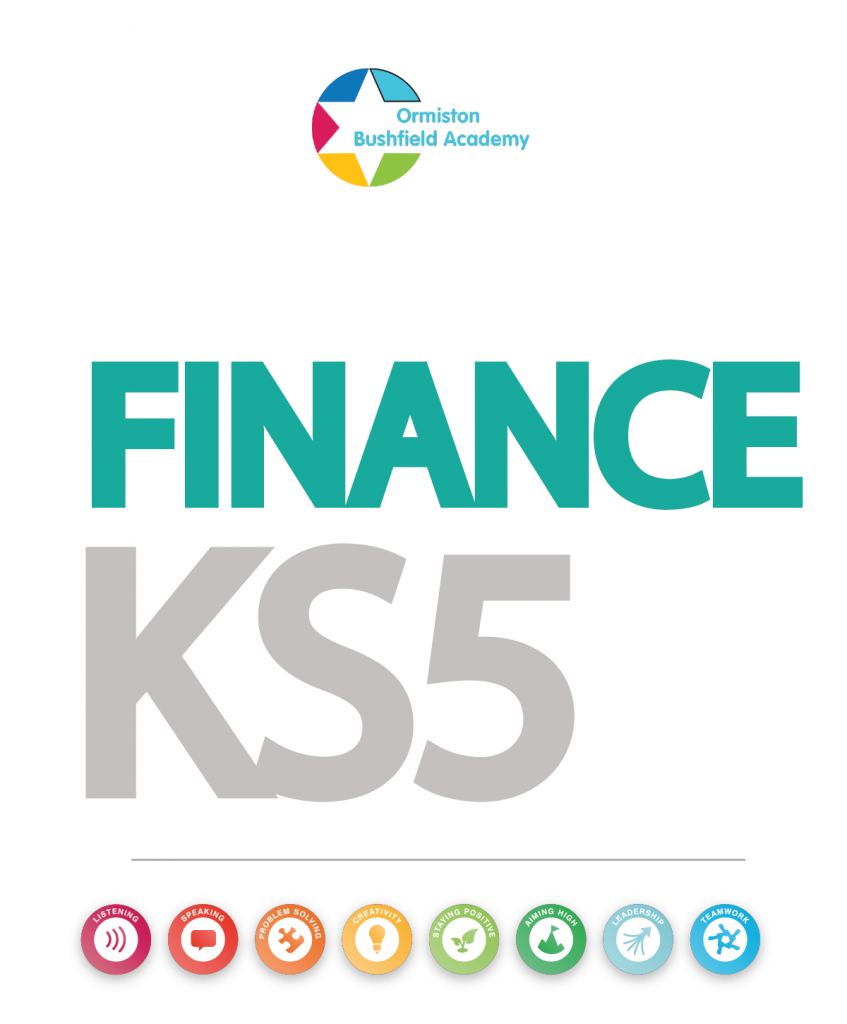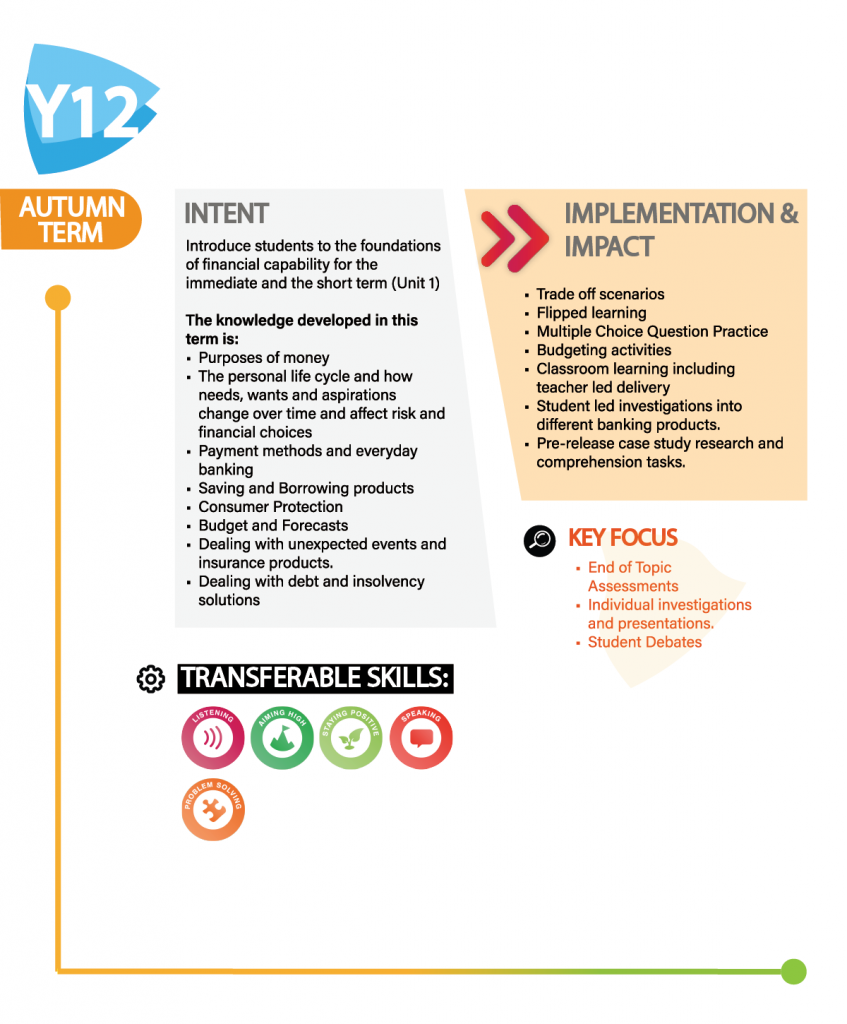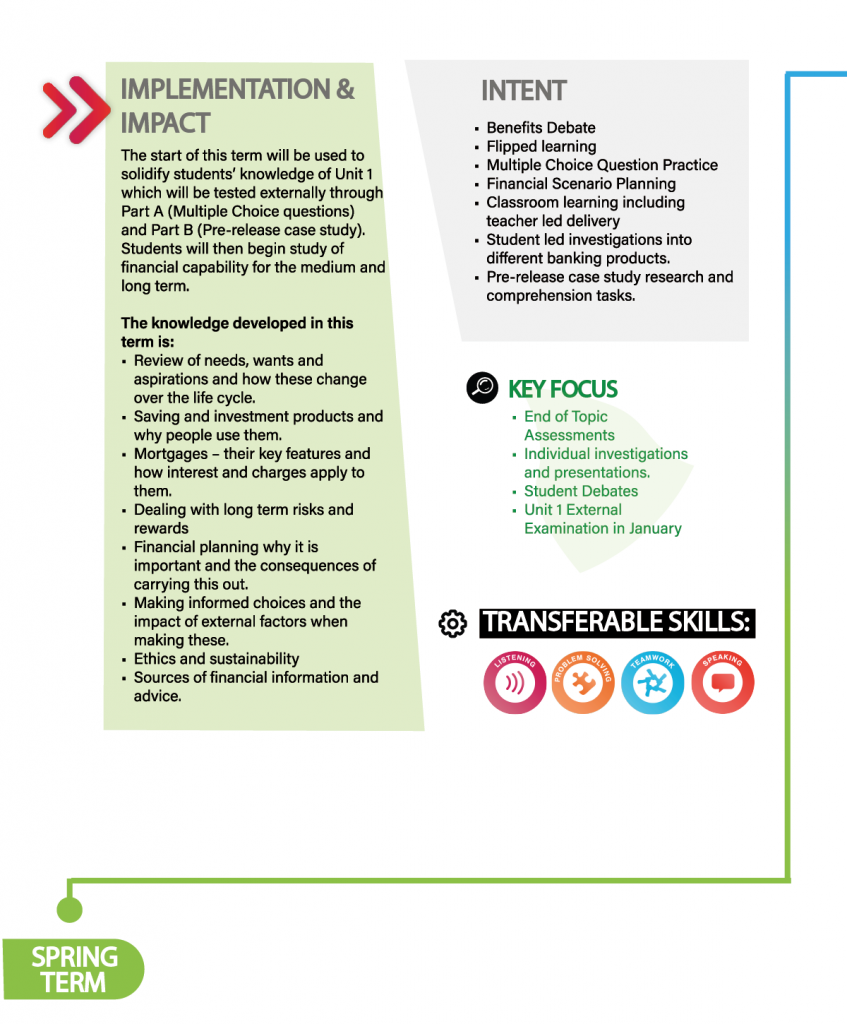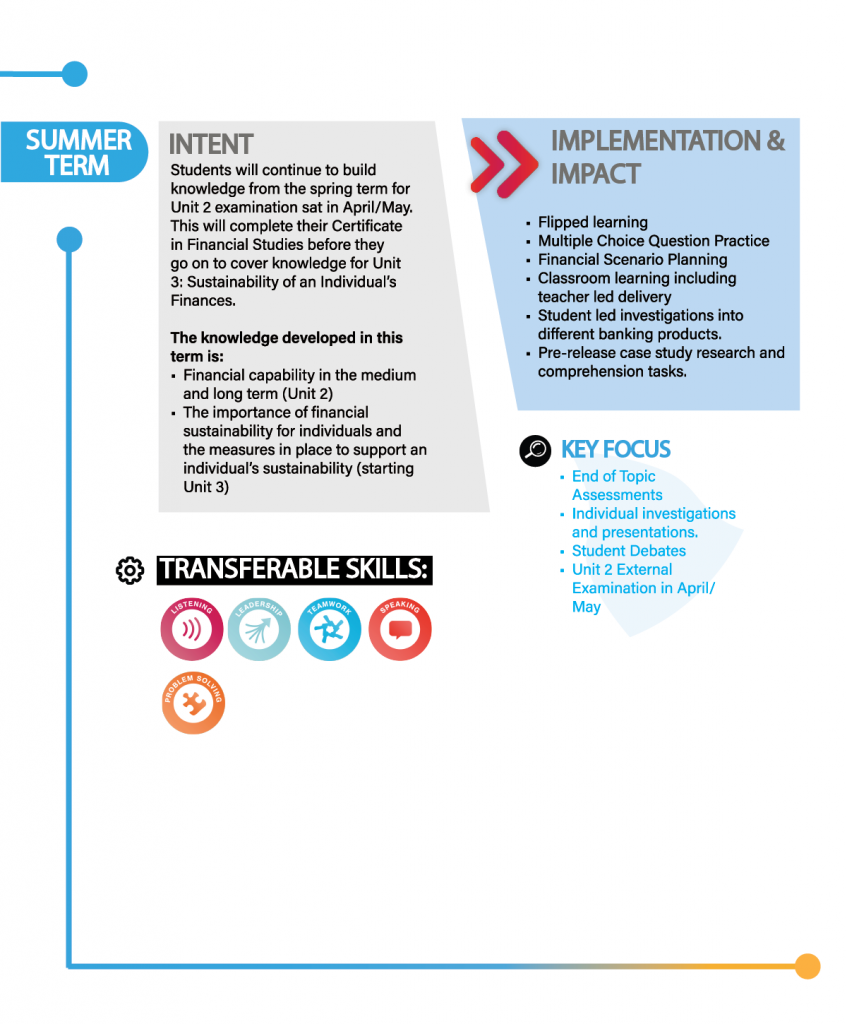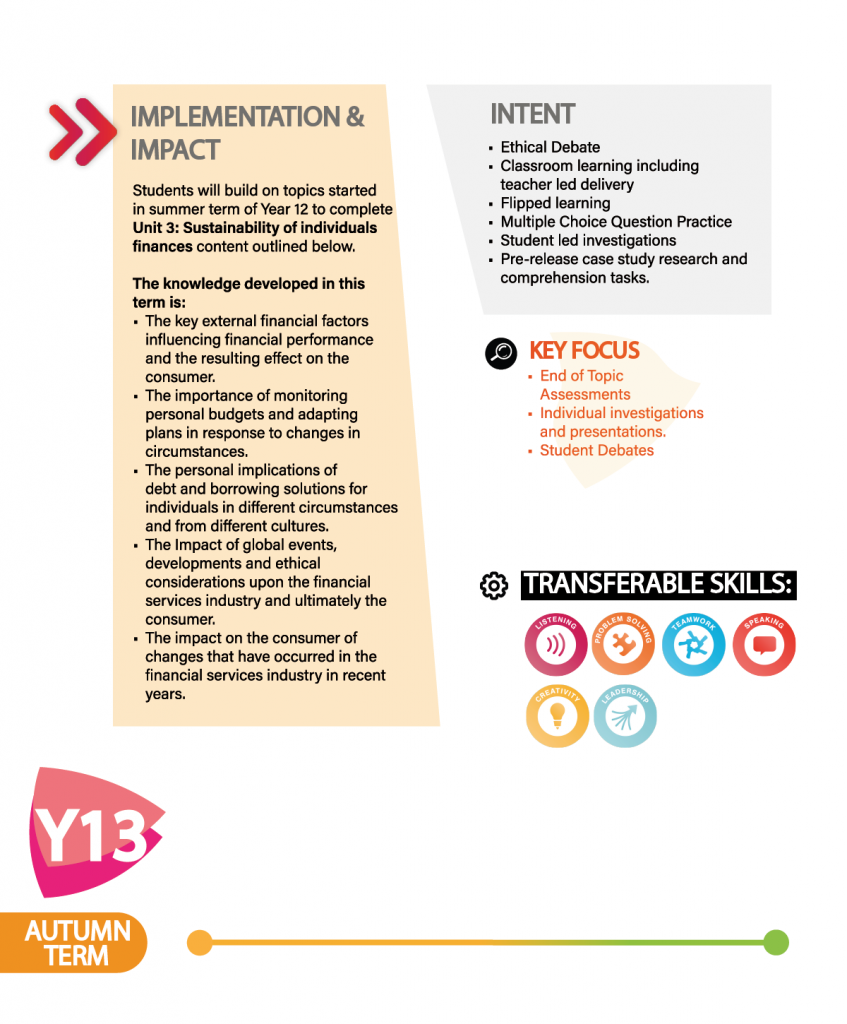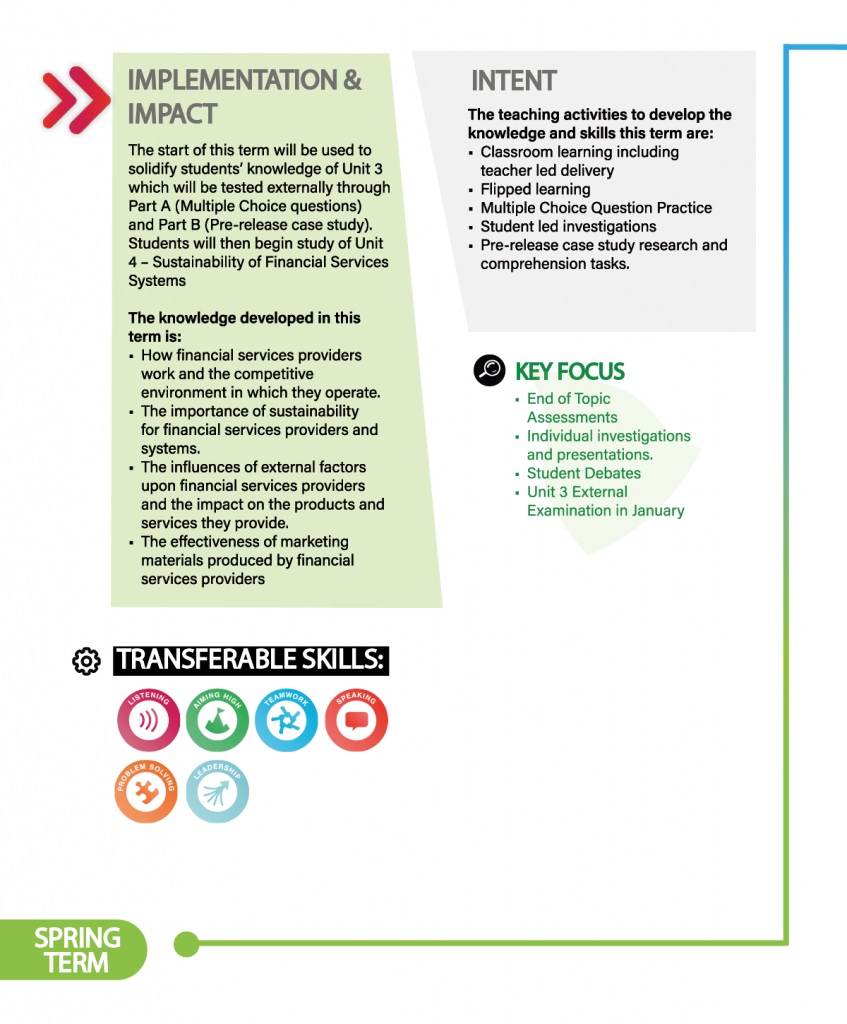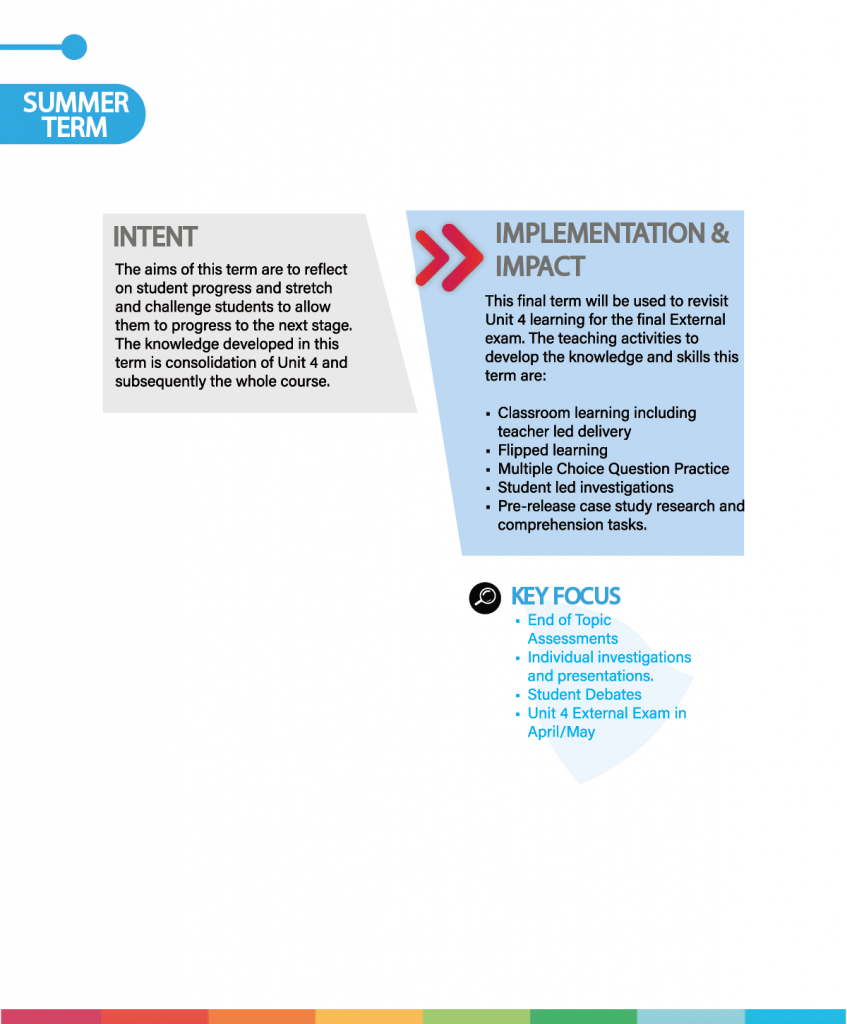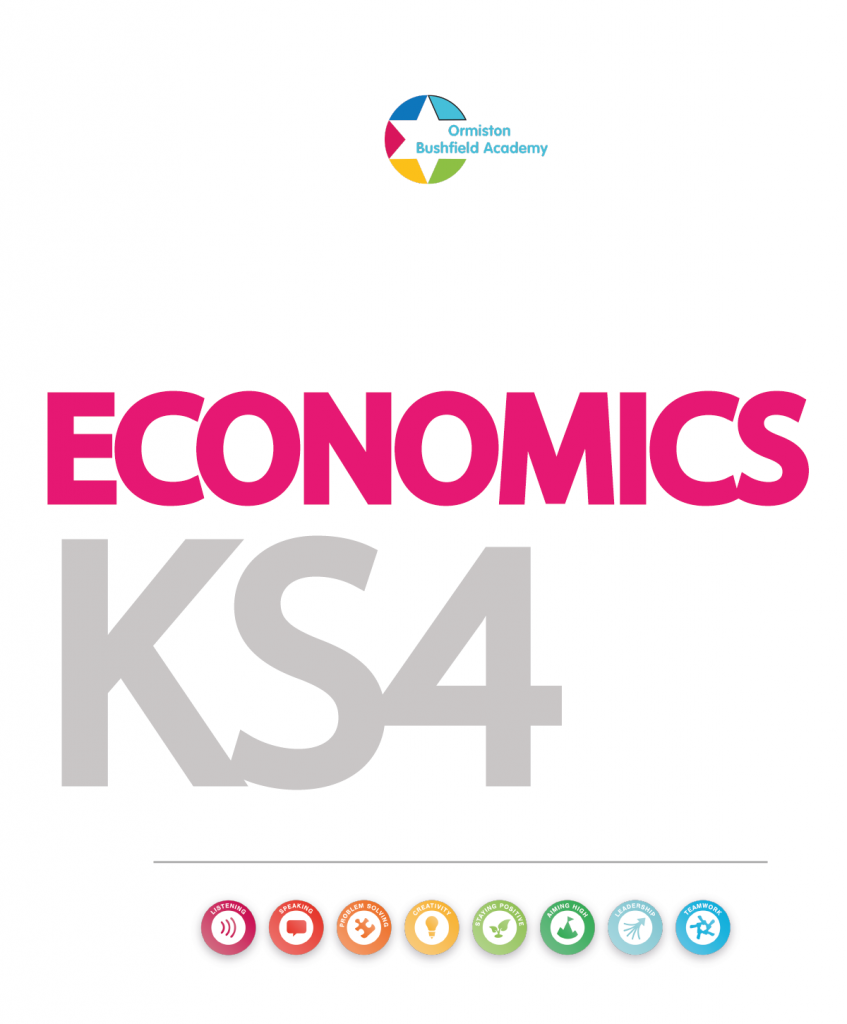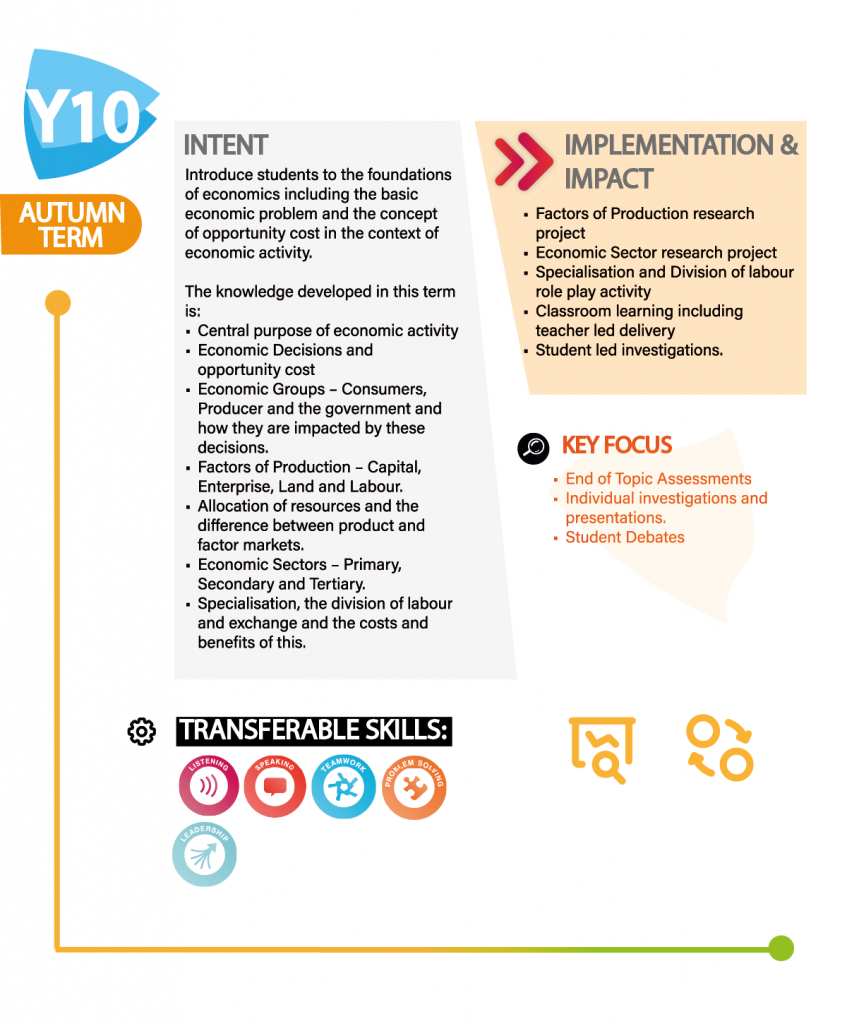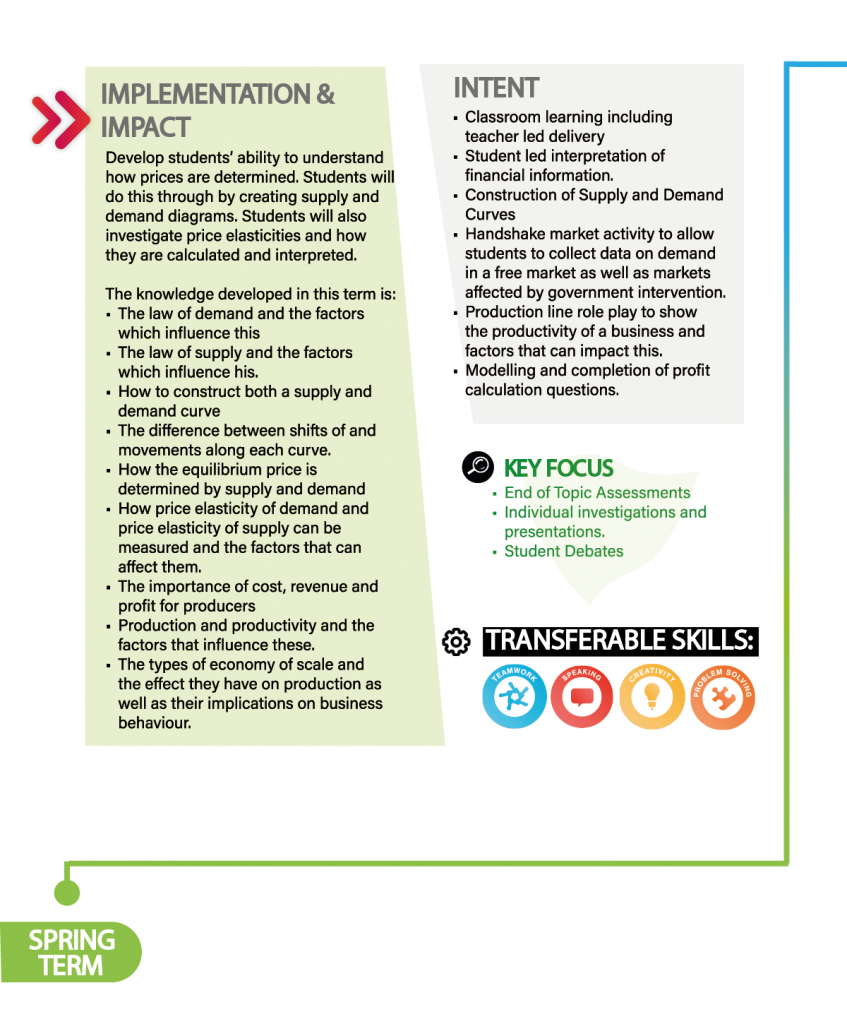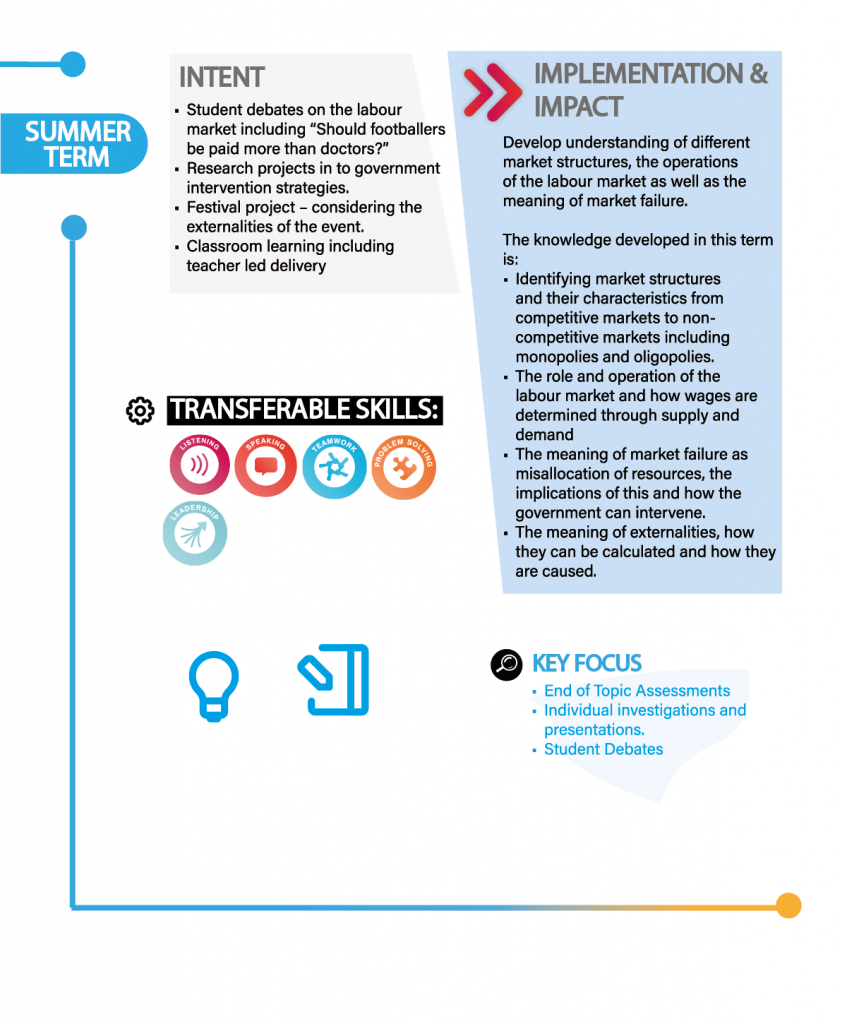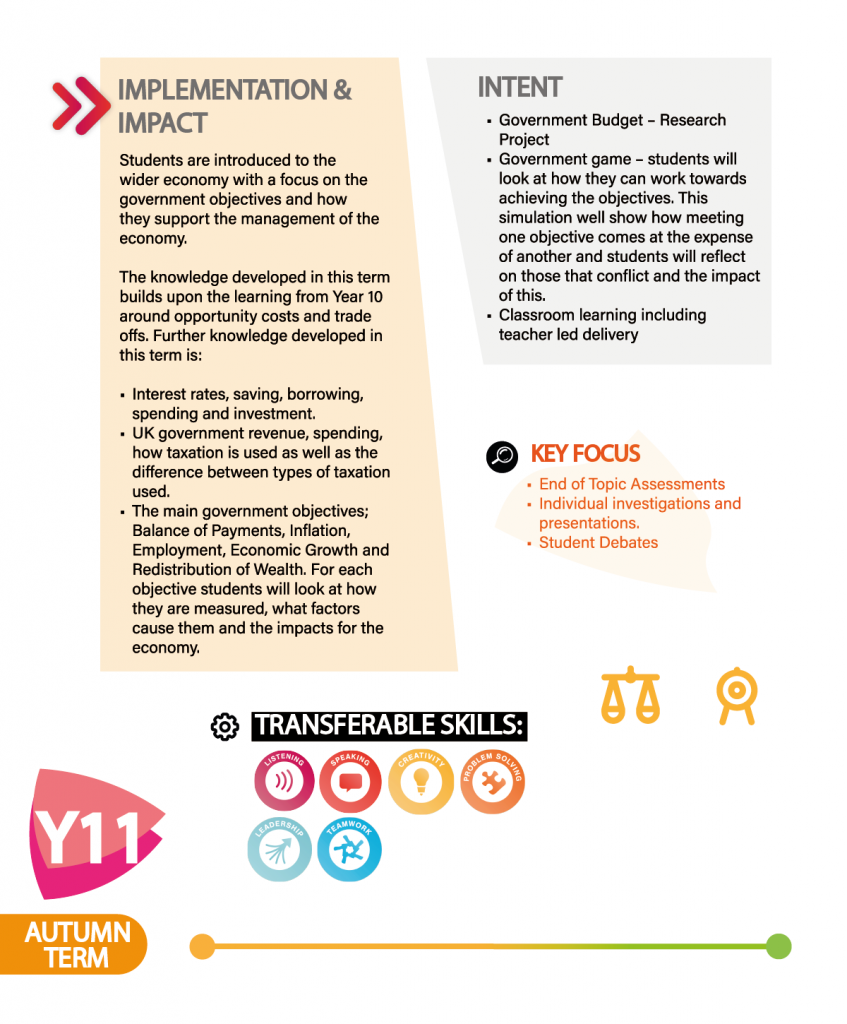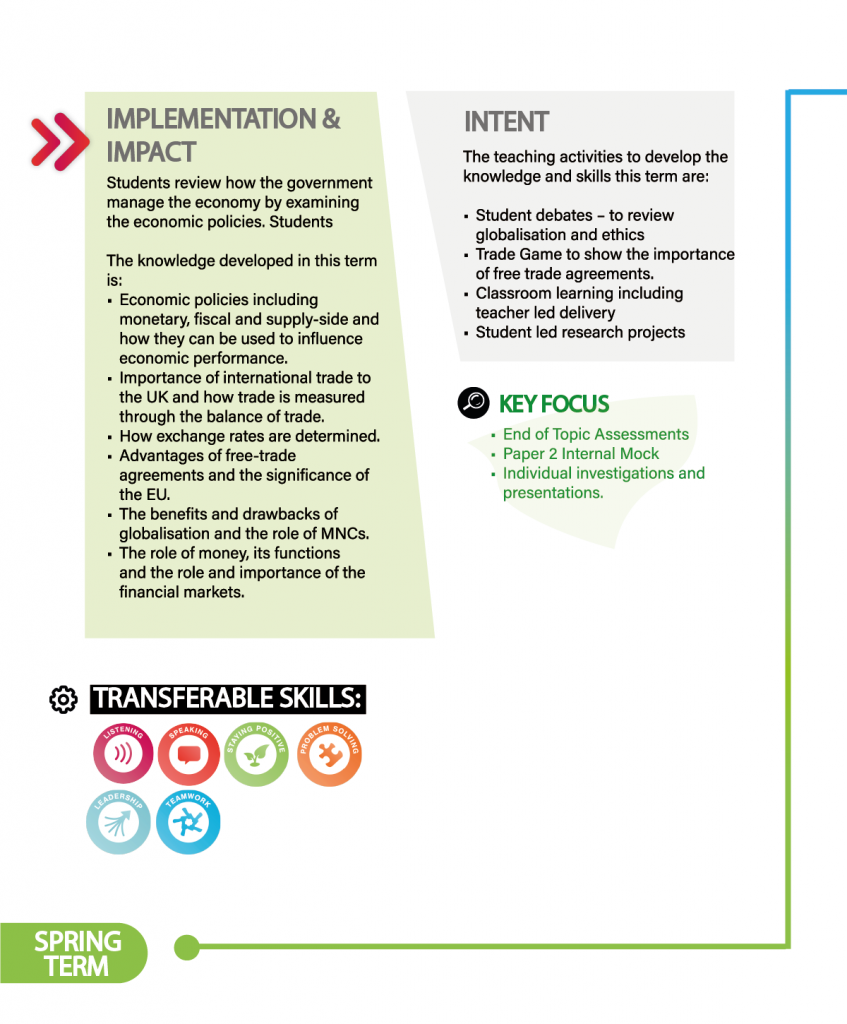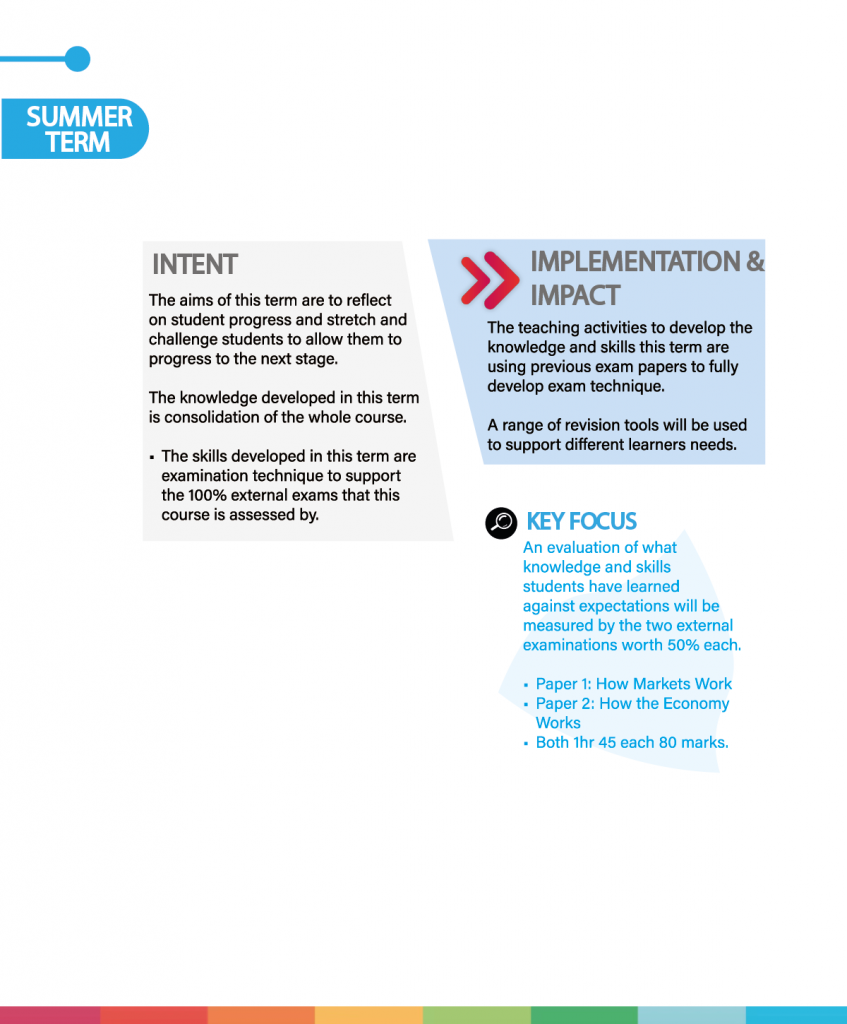Business, Economics and Finance
The problem that faces all of us in everyday life, regardless of what that life might look like is ‘The Economic Problem’. There are not enough resources to fulfil all our wants and needs. How therefore should resources be allocated? The Business, Finance and Economics Curriculum ensures students have an appreciation of how the government, market and individuals decide on how best to allocate resources, developing life skills for students.
As debt and poor financial decision making is leading to an ever-increasing problem in the UK as a whole and the mental health of individuals, it is key that students learn how they can manage their finances and make good financial decisions. To make a positive difference to our students and their families helping them understand how they can change their financial prospects is key.
The Business, Finance and Economics Curriculum educates our students about the world in which they live and the role they play. It helps them to develop the skills to manage their finances and avoid bad debts, to understand how businesses and enterprises work as well as the global economic situation. The Business, Finance and Economics Curriculum allows OBA student to become highly skilled, knowledgeable global citizens.
All students are welcome to study Business, Finance or Economics. The subject content is relevant and important for all people and we deliver the curricula in a way that is fully inclusive. We break down the theory into manageable chunks and use real life examples to consistently apply and support students’ understanding of the world around them. Our lessons are structured in such a way that there is ample opportunity to support students as well as stretch and challenge the most able students. The lessons learned within our curricula are important for all students and we ensure that everyone is able to access and understand the key theories.
The use of real-life case studies in all our lessons, highlights the need for students to read and support their understanding of the real world. The more students read about the world in which they live, the better able they are to comprehend the subjects we study.
Recommended Reading:
The most powerful reading to improve understanding will come from 20 minutes per day reading the main business news articles on Business – BBC News
The following are suggestions of books to consider, but the list of reading that is relevant is varied and should be adjusted to meet your own personal areas of interest.
The Tipping Point: How Little Things Can Make a Big Difference – Malcolm Gladwell
Inside Apple: The Secrets Behind the Past and Future Success of Steve Hob’s Iconic Brand – Adam Lashinsky
Freakeconomics: A Rogue Economist Explores the Hidden Side of Everything – Steven D Levitt and Stephen J Dubner
The Undercover Economist – Tim Harford
Autobiographies: Richard Branson, Stephen Bartlett, Sir Alan Sugar, Sara Davies to name but a few.
To really understand how businesses work it is important to gain an insight into real businesses. We use case studies and TV programmes to open up the inside world of Business, but now that we are emerging into a post Covid world there are increasing opportunities.
We hope to be able to offer the following enrichment opportunities as part of extending the Business, Finance and Economics Curriculum:
- Young Enterprise
- KS3 Business club
- KS5 Economics enrichment and debate
- Cadbury’s World visit.
- Young Financial Journalist Competition with LIBF
Curriculum Maps
Here you can browse the curriculum maps for each Key Stage. Use the tabs to select the subject and key stage you wish to view, and use the left & right arrows to browse through the slides.
